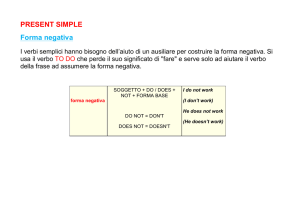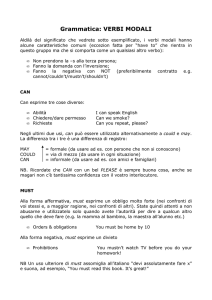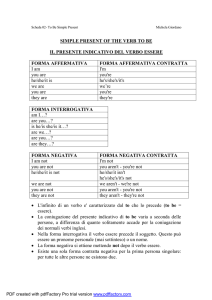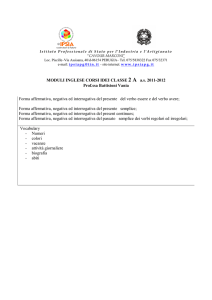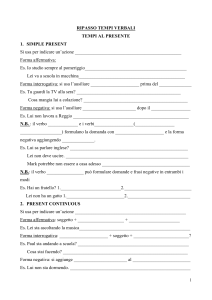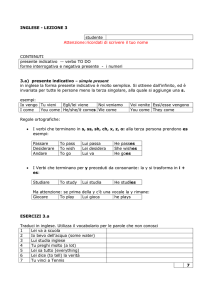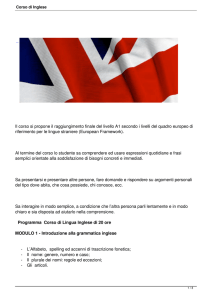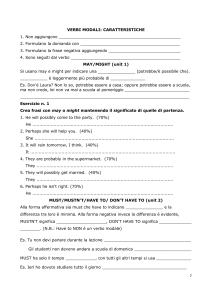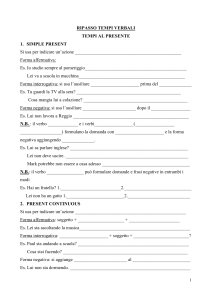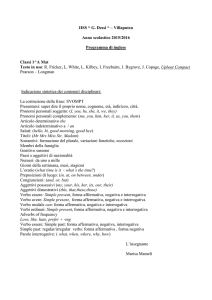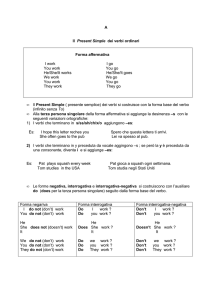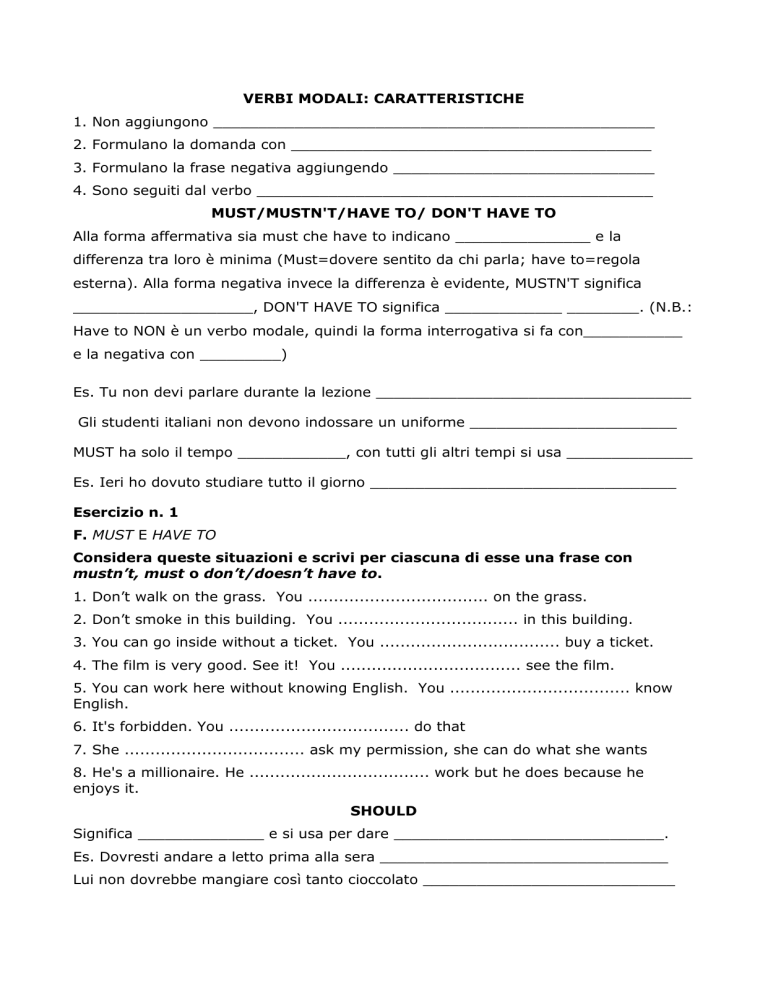
VERBI MODALI: CARATTERISTICHE
1. Non aggiungono _________________________________________________
2. Formulano la domanda con ________________________________________
3. Formulano la frase negativa aggiungendo _____________________________
4. Sono seguiti dal verbo ____________________________________________
MUST/MUSTN'T/HAVE TO/ DON'T HAVE TO
Alla forma affermativa sia must che have to indicano _______________ e la
differenza tra loro è minima (Must=dovere sentito da chi parla; have to=regola
esterna). Alla forma negativa invece la differenza è evidente, MUSTN'T significa
____________________, DON'T HAVE TO significa _____________ ________. (N.B.:
Have to NON è un verbo modale, quindi la forma interrogativa si fa con___________
e la negativa con _________)
Es. Tu non devi parlare durante la lezione ___________________________________
Gli studenti italiani non devono indossare un uniforme _______________________
MUST ha solo il tempo ____________, con tutti gli altri tempi si usa ______________
Es. Ieri ho dovuto studiare tutto il giorno __________________________________
Esercizio n. 1
F. MUST E HAVE TO
Considera queste situazioni e scrivi per ciascuna di esse una frase con
mustn’t, must o don’t/doesn’t have to.
1. Don’t walk on the grass. You ................................... on the grass.
2. Don’t smoke in this building. You ................................... in this building.
3. You can go inside without a ticket. You ................................... buy a ticket.
4. The film is very good. See it! You ................................... see the film.
5. You can work here without knowing English. You ................................... know
English.
6. It's forbidden. You ................................... do that
7. She ................................... ask my permission, she can do what she wants
8. He's a millionaire. He ................................... work but he does because he
enjoys it.
SHOULD
Significa ______________ e si usa per dare ______________________________.
Es. Dovresti andare a letto prima alla sera ________________________________
Lui non dovrebbe mangiare così tanto cioccolato ____________________________
MAY/MIGHT
Si usano per indicare una _______________ (potrebbe/è possibile che).
___________ è leggermente più probabile di ______________
Es. Dov'è Laura? Non lo so, potrebbe essere a casa; oppure potrebbe essere a scuola,
ma non credo, lei non va mai a scuola al pomeriggio __________________________
____________________________________________________________________
CAN/COULD/BE ABLE TO
CAN significa _________________ e si usa solo al tempo _________________
Es. Mio fratello non sa sciare ______________________
COULD è il _______________ e il __________________ di CAN
Es. Quando ero bambino, non sapevo nuotare __________________________
Potresti prestarmi una biro? __________________________________?
BE ABLE TO si usa al posto di CAN ____________________________ e NON è un
verbo modale
Es. Sono sicuro che l'anno prossimo saprò guidare ____________________________
Laura è capace di nuotare da quando aveva 6 anni ____________________________
N.B. Differenza tra COULD e WAS ABLE TO (solo alla forma affermativa, alla forma
negativa e interrogativa non c'è differenza)
COULD indica una capacità ________________
Es. Quando era bambino, sapeva già parlare inglese molto bene
_________________________________________________________________
WAS/WERE ABLE TO indica che si è riusciti a fare qualcosa in una ______________
Es. Anche se ero in ritardo, ho potuto prendere il treno________________________
Esercizio n. 2
Inserisci could oppure was/were able to nella forma corretta
1 - My uncle was very clever. He __________ speak 4 languages.
2 - My father wasn't at home when I phoned , but I ______________ contact him
later.
3 - A little boy fell into the river but some men ________________ rescue him.
4 - He had forgotten to bring his camera so he ____________ take any photos of the
wedding.
5. When the car broke down I was really pleased because I _________________
solve the problem.
6. Julian _________________ play excellent golf when he was only ten.
7. My grandmother _________________ use a computer until last month. Since then,
she’s been taking lessons at the library.

